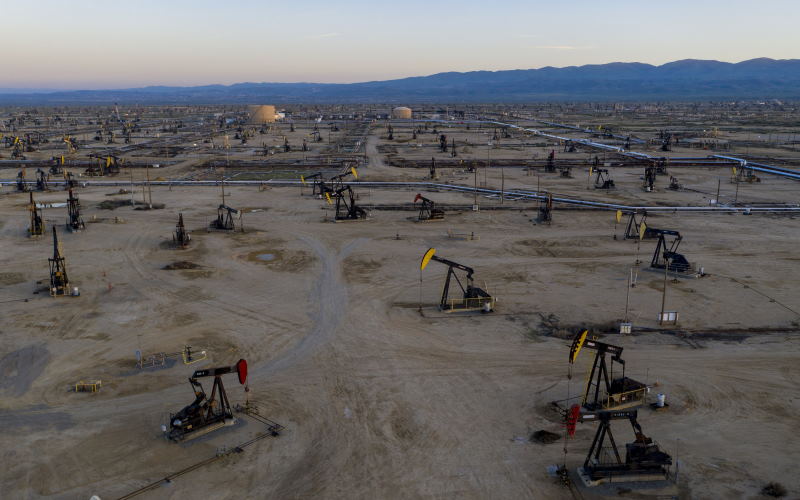Oil prices slip as U.S. inventories and virus fears grow

Oil prices fell on Wednesday as industry data showed a bigger than expected inventory build in the United States, where a surge in coronavirus cases could further dent fuel demand in the world’s biggest oil consumer.
Brent crude fell 60 cents, or 1.4%, to $43.72 a barrel by 0912 GMT. U.S. West Texas Intermediate (WTI) crude dropped 70 cents, or 1.7%, to $41.22.
The American Petroleum Institute (API) industry group reported U.S. crude inventories rose last week by 7.5 million barrels, against expectations for a draw of 2.1 million barrels. [API/S]
The U.S. Energy Information Administration (EIA) releases official oil data later on Wednesday. [EIA/S]
“U.S. glut fears have become a permanent fixture of the oil market,” said Stephen Brennock of oil broker PVM. “This will remain the case so long as the U.S. oil demand outlook is being undermined by the country’s failure to contain the COVID pandemic.”
Global coronavirus infections surged past 15 million on Wednesday, according to a Reuters tally, with the pandemic gathering pace even as countries remain divided in their response to the crisis.
In his first pandemic press briefing in months, U.S. President Donald Trump said the outbreak would probably worsen before it gets better. His comments were a shift in strategy from his previously robust emphasis on reopening the U.S. economy.
However, the markets could soon view Trump’s words positively, said Rystad Energy’s head of oil markets, Bjornar Tonhaugen, because it was one of the administration’s most reasonable announcements on the pandemic.
“This could be a positive for oil demand prospects. Instead of an uncontrolled, disruptive second wave of lockdowns, maybe chances have now increased that the United States will eventually get the spread under control,” Tonhaugen said.
Republicans and Democrats are also struggling to come to terms over more fiscal support for the economy, contrasting with the European Union deal that lifted oil prices on Tuesday.
Rising tension between the United States and China over the coronavirus and Hong Kong also pressured prices.
China said that the United States had abruptly told it to close its consulate in Houston – a move that Beijing said it strongly condemns, threatening retaliation.
There are also signs that Iraq, the second-largest producer in the Organization of the Petroleum Exporting Countries (OPEC), is still not meeting its target under an OPEC-led supply pact.
Russia, meanwhile, plans to cut its oil loadings from Baltic ports and Black Sea port Novorossiisk over Aug. 1-10 by nearly a quarter compared with the corresponding period in July, according to a preliminary loading schedule and Reuters calculations, which could support prices.
